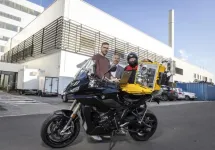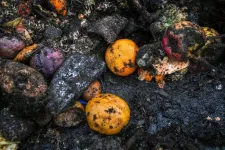The project, titled “NSF-JST: An Inclusive Human-Centered Risk Management Modeling Framework for Flood Resilience,” is supported by a three-year, $1 million award split evenly between the U.S. and Japanese teams, with the U.S. team receiving $499,271. The project is designed to create a modeling system that considers the natural conditions of the study area, people’s perceptions and experiences related to floods, and factors such as governmental policies on buyouts and insurance. Most importantly, the research explicitly considers the differential impacts of floods on vulnerable groups, including low-income, minority, disabled and elderly individuals.
“Modern flood risk is shaped by a combination of natural processes and human activities,” said Alka Sapat, Ph.D., co-principal investigator, and professor and director of the FAU School of Public Administration within the Dorothy F. Schmidt College of Arts and Letters. “On the natural side, factors like how rainfall turns into streamflow, soil saturation, and the behavior of watersheds play a critical role. On the human side, it involves decisions about how infrastructure is designed, how communities are organized, and how properties are protected or exposed. To truly understand and address flood risk, we must adopt a multifaceted approach. This means examining risks at specific spatial scales – looking closely at the unique characteristics of particular regions – recognizing that vulnerabilities and impacts vary within those areas, and assessing the broader, long-term consequences of floods on society, including economic, social and environmental effects.”
The project is structured around three research tasks. The first focuses on establishing a comprehensive U.S.-Japan flood risk data inventory, concentrating on existing and missing data related to marginalized groups. The work serves as a foundation for future collaborative flood research between the two countries.
The second research task involves the development of a two-way coupled, multi-scale, agent-based flood risk catastrophe model that considers both marginalized and non-marginalized groups. This international collaboration ensures the incorporation of diverse cultural and societal factors from Japan and the U.S.
The third research task centers on analyzing flood risks and resilience by jointly creating weather-related and socioeconomic scenarios with an inter-country project advisory board. This project forms a meaningful trans-Pacific partnership for the next generation of flood modeling and advances the four priority areas of the Sendai Framework: understanding disaster risk; strengthening disaster risk governance; investing in disaster risk resilience; and enhancing disaster preparedness.
Researchers will use the developed model to quantitatively evaluate the impact of flood insurance policies, buyout policies, population dynamics, and degrees of urbanization on marginalized groups. They also will host a workshop in Japan as the main channel for disseminating their results. This framework will include a “human adaptation module” that utilizes an agent-based modeling approach to interact with other modules through structural, behavioral, and policy adaptations on an annual basis.
“International collaboration is essential to ensure that the human adaptation module is versatile enough to account for the cultural and societal differences between Japan and the United States,” said Michael Horswell, Ph.D., dean of FAU’s Dorothy F. Schmidt College of Arts and Letters. “Through the involvement of an inter-country project advisory board, which will assess scenarios involving disaster risk and socioeconomic shifts, researchers aim to identify both the contrasts and commonalities in how future flood risks might impact and shape recovery efforts in the two nations. Crucially, this partnership will yield policy insights that go beyond the capabilities of teams working independently in each country.”
Educationally, the project will provide interdisciplinary training and networking opportunities for postdoctoral scientists and graduate students in both countries. The collaborative interactions among research teams and the project advisory board will serve as a blueprint for industry-government-academia collaborations in the field of flood modeling. In terms of outreach, this project directly addresses topics of great societal importance to the public sector, namely social vulnerability, and environmental resilience, while it also expands the analytical models used by the private sector.
Y.C. Ethan Yang, an associate professor of civil and environmental engineering in the P.C. Rossin College of Engineering and Applied Science at Lehigh University, is the principal investigator of the project; and David Casagrande, Ph.D., an associate professor of anthropology at Lehigh University, is co-principal investigator.
The collaborative research initiative between the two prominent organizations – NSF-JST – enables researchers from both countries to work together by submitting joint proposals for research projects. These projects typically focus on shared scientific priorities, such as disaster resilience, human-centered data analysis, and other innovative fields. By combining resources and expertise, the NSF-JST collaboration promotes international scientific cooperation, advances research in critical areas, and fosters strong ties between the two countries’ research communities.
- FAU -
About Florida Atlantic University:
Florida Atlantic University, established in 1961, officially opened its doors in 1964 as the fifth public university in Florida. Today, the University serves more than 30,000 undergraduate and graduate students across six campuses located along the southeast Florida coast. In recent years, the University has doubled its research expenditures and outpaced its peers in student achievement rates. Through the coexistence of access and excellence, FAU embodies an innovative model where traditional achievement gaps vanish. FAU is designated a Hispanic-serving institution, ranked as a top public university by U.S. News & World Report and a High Research Activity institution by the Carnegie Foundation for the Advancement of Teaching. For more information, visit www.fau.edu.
END




